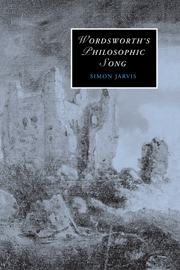6 - Life
Published online by Cambridge University Press: 22 September 2009
Summary
‘Life is a Term, none more familiar. Any one almost would take it for an Affront, to be asked what he meant by it. And yet if it comes in Question, whether a Plant, that lies ready formed in the Seed, have Life: whether the Embrio in an Egg before Incubation, or a Man in a Swound without Sense or Motion, be alive, or no, it is easy to perceive, that a clear distinct settled Idea does not always accompany the use of so known a Word, as that of Life is.’ It is irritating to have to think minutely about known words. It is especially irritating in connection with a poet who could write that a breeze in a spring wood could teach you more than anything in the library. Kierkegaard once mocked theologians who gave the impression that salvation depended upon keeping up with the literature. Wordsworth would have sympathized with that. Something of the same feeling can be heard in his remark to Crabb Robinson that ‘he had never read a word of German metaphysics, thank Heaven!’ But today's super-subtlety can become tomorrow's common sense, and the question of ‘Wordsworth and philosophy’, which had perhaps been widely hoped finally exhausted, reopens continually. First of all because, as has already been suggested, the bad choice between Wordsworth as verse metaphysician and Wordsworth as anti-philosophical craftsman has been allowed to determine the terms of that question.
- Type
- Chapter
- Information
- Wordsworth's Philosophic Song , pp. 153 - 194Publisher: Cambridge University PressPrint publication year: 2006



